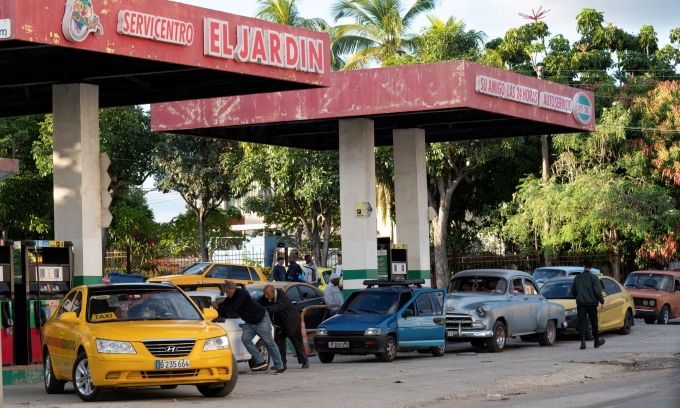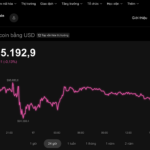Cuba Raises Gasoline Prices by 500%
Granma, the official newspaper of the Communist Party of Cuba, reports that Finance Minister Vladimir Regueiro has announced a 500% increase in gasoline prices starting from March 1. This price hike comes over a month later than previously anticipated. It is part of a series of measures aimed at reducing the budget deficit.
Finance and Pricing Minister Vladimir Reguero emphasized that these changes are intended to “revive” the Cuban economy, which is currently in crisis.
Under the new price schedule, regular gasoline will increase from 25 peso (0.2 USD) to 132 peso (135,700 dong) per liter, while the price of premium gasoline will rise from 30 peso (30,800 dong) to 156 peso (160,300 dong) per liter. Tourists visiting Cuba will have to pay for gasoline in foreign currency.
Despite the significant increase in gasoline prices, public transportation fares in the country will remain unchanged. Natural gas prices have also not increased.

Cubans waiting in line for gasoline. Photo: AFP.
According to economist Omar Everleny Perez from the University of Havana, gasoline in Cuba is much cheaper compared to other countries in the world. However, when considering domestic wages, it becomes quite expensive. He believes that the new gasoline prices will have an impact on “the entire society”.
Alongside the gasoline price increase, electricity prices will also rise by 25% for customers using a significant amount of electricity in residential areas.
Petroleum Products – A Bright Star for Vietnam’s Exports
In Vietnam, petroleum products are an important export item, consistently ranking among the top export products worth billions of US dollars.
In 2023, Vietnam’s petroleum export volume reached 2,377,887 tons, valued at 2.02 billion USD, an increase of 13.2% in volume and a 1.1% decrease in value. Cambodia remains the largest market for Vietnam’s petroleum exports, with 517,220 tons worth 438.06 million USD, accounting for over 21% of the total volume and value of exports.
The second-largest market is South Korea, which accounts for 9-10% of the total volume and value, with 220,775 tons and 208.9 million USD, respectively.
Singapore ranks third, accounting for 13.5% of the total volume and 9.9% of the total value, with 322,018 tons and 202.18 million USD, respectively.
According to preliminary statistics from the General Department of Customs, Vietnam’s petroleum exports in January 2024 reached 227,585 tons, valued at 193.1 million USD. Cambodia remains the largest market for Vietnam’s petroleum exports, with 43,829 tons worth 36.6 million USD. The following positions are China with 27,798 tons, South Korea with 24,742 tons, and Laos with 14,277 tons.
Petroleum products are strategic commodities that have a significant impact on the consumer price index (CPI) and macroeconomic stability. The Ministry of Industry and Trade has reported that the minimum total petroleum reserve for production and domestic consumption in 2024 is nearly 28.42 million m3/tons of various petroleum products.
Minister of Industry and Trade Nguyen Hong Dien has issued a general task for ministries, departments, and localities to ensure a continuous and sufficient supply of petroleum products, without any disruptions, even in localized situations.
To meet domestic consumption needs, the Vietnam Oil and Gas Group has been allocated 1.5 million m3/tons by the Ministry of Industry and Trade for 2024, representing a 12% increase compared to the Group’s sales volume in 2023. For diesel, the increase is 22% compared to the Group’s sales volume in 2023. In early January 2024, the Group actively procured from two domestic refineries and imported additional volumes, representing a 10% increase compared to the average allocated volume.
Meanwhile, the Military Petroleum Corporation has been allocated a 30% increase in quota compared to the 2023 plan, an 18% increase compared to the 2023 performance.












